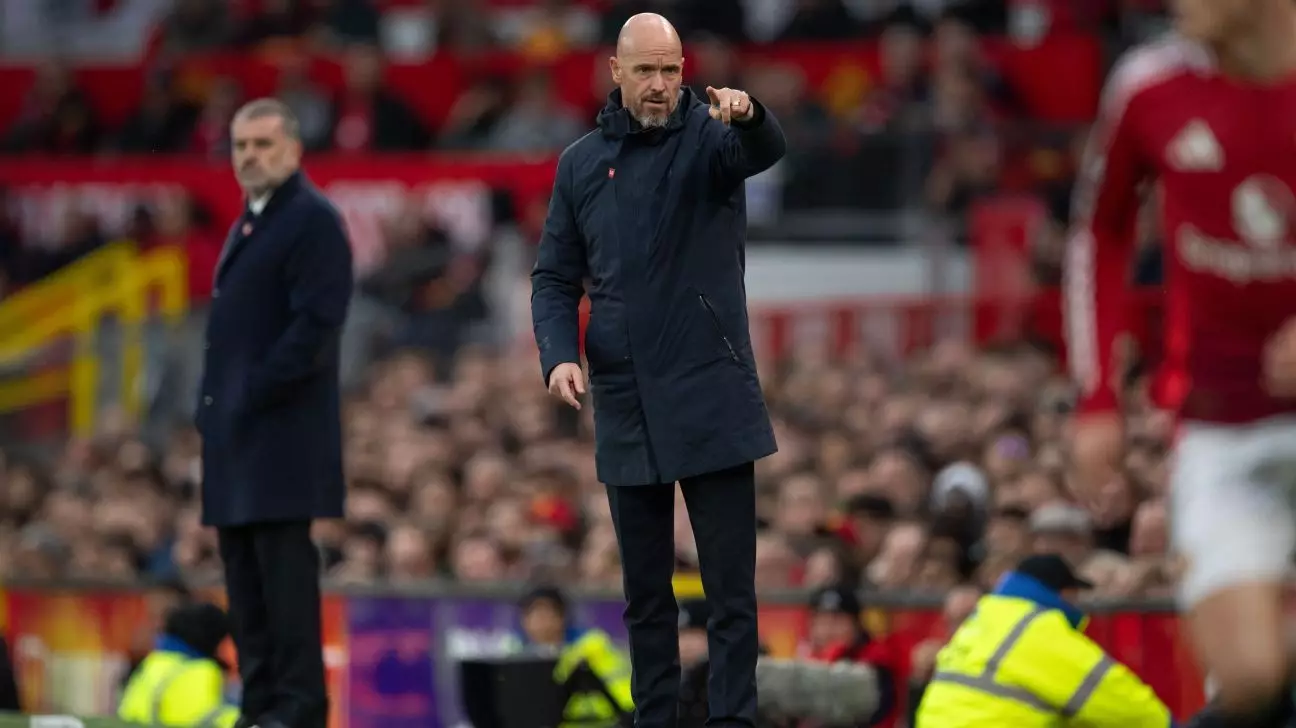The tumultuous journey of Manchester United in the current football season serves as a compelling case study in resilience and leadership. With a rocky start characterized by inconsistent performances, recent games have intensified scrutiny on manager Erik ten Hag. This analysis seeks to unpack the implications of the recent defeats, injuries within the squad, and the strategies employed by Ten Hag, providing insight into the challenges and opportunities facing the club.
Shifting Focus: The Aftermath of the Spurs Defeat
Manchester United’s disappointing 3-0 home defeat to Tottenham was a pivotal moment in the season, not only for the team’s morale but also for the tactical decisions made under pressure. Ten Hag’s decision to effectively “deny” the loss, especially after Bruno Fernandes’ red card was rescinded, indicates an intricate psychological approach favored by the coach to shield his players from the weight of demoralizing defeats. By downplaying the match’s significance, Ten Hag aims to cultivate a mindset where the players can focus on upcoming challenges rather than dwell on past mistakes.
The red card issued to Fernandes—a critical moment that altered the trajectory of the match—was intensely debated, revealing an evident rift between officiating decisions and game dynamics. It’s a testament to how critical moments in matches can disproportionately affect outcomes and team morale. Ten Hag’s assertion that the red card galvanized an injustice speaks volumes, as it underlines a fundamental concern within the manager’s narrative: accountability must be shared among all facets of the game, including officiating.
Injuries: An Albatross Around United’s Neck
Injuries have emerged as a formidable adversary for Manchester United this season. Key players like Luke Shaw and Mason Mount have made minimal impact due to ongoing fitness issues, leaving gaps in the defensive and midfield lines. Ten Hag’s observation that the lack of available players hampers the team’s performance is crucial; it highlights how injuries not only weaken the squad but also complicate tactical preparations for matches. As the team aims to ascend the league table, these absences significantly influence their capacity to execute game plans effectively.
Ten Hag’s role here transcends mere tactical execution; he must exhibit adaptability, rotating players strategically to mitigate the risks associated with injury-induced unpredictability. His understanding of the team’s potential when fully fit is key yet presents a challenging paradox. How can one build a cohesive unit while frequently adapting to personnel changes? Ten Hag’s dilemma encapsulates the broader issues faced by many managers in high-stakes football today.
Despite the plethora of challenges, Ten Hag’s emphasis on resilience and determination has begun to resonate within the squad. The manager’s remarks after the draw with Fenerbahce reflect a belief in the team’s innate character—a necessary cornerstone for any successful footballing entity. This is not merely a platitude; it speaks to a deeper ethos that Ten Hag is instilling in his team.
Match resilience is often the difference between mediocrity and success in football. The manager’s insistence on cultivating a fighting spirit among players is both a rallying cry and a strategic approach to overcoming hurdles. The sequence of challenging fixtures against teams like Porto and Brentford will serve as a litmus test for this character, providing opportunities to gauge the squad’s ability to rally collectively under duress.
As Manchester United prepares for its next Premier League encounter against West Ham, the salient lesson from previous matches lies in the urgent need for consistency—both in performance and mindset. While Ten Hag’s management style fosters resilience, the execution on the pitch remains crucial. Upcoming matches will not only test the squad’s tactical proficiency but also demand a continued commitment to overcoming adversity.
The importance of squad depth cannot be overstated; as Ten Hag has consistently highlighted, the collective effort of coaching staff, players, and associated personnel will determine the team’s trajectory this season. By addressing injury issues and fostering a resilient, unified front, Ten Hag is not merely hoping for results; he is crafting a culture that aspires to greatness.
Manchester United’s pursuit of success hinges on embracing both setbacks and strengths. The road will be challenging, but under Ten Hag’s leadership, the resilience and character displayed thus far suggest that a transformative season may yet be in store for the Red Devils.

